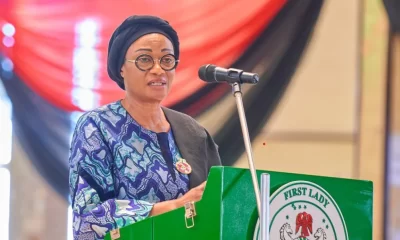The African Development Bank (AfDB), has announced enrollment of 130,000 users in its Coding for Employment digital skills programme in Africa, for the International Youth Day (IYD).
According to a statement from the bank, the milestone comes as the programme works to equip African youths with information and communication technology, entrepreneurship and soft-skills training, to compete in a digital economy.
The programme’s online platforms offer in-demand technical courses such as web development, design, data science and digital marketing, for free.
The bank stated that the platform experienced an increase in the number of users, with the onset of the COVID-19 pandemic.
“During a one-week period in September 2020, registrations skyrocketed by 38.5 per cent.
“Through the bank’s partnership with the Government of Nigeria to launch the Digital Nigeria eLearning platform during the pandemic, coding for employment hit a combined total of 130,000 students.
“Registered students are achieving a course completion rate of more than 80 per cent,” it stated.
Also, Martha Phiri, Director, Human Capital, Youth and Skills Development Department, AfDB, said African youths must be equipped with digital skills to empower them for jobs of the future.
Phiri pointed out that equipping youths would win the battle against poverty in Africa.
Moreover, Hendrina Chalwe Doroba, Division Manager for Education and Skills Development, AfDB, said the pandemic accelerated the adoption of online learning as a necessity.
“Coding for employment swiftly leveraged its online digital skills platform, to continue to offer a gateway for African youths to become more digitally capable,” Doroba said.
The online training programme was in tandem with planned upgrade of physical coding for employment-branded Centers of Excellence, piloted in Nigeria, Kenya, Rwanda, Senegal and Côte d’Ivoire.
The bank aimed to scale up to 130 centers across the continent in a decade.
The programme’s main digital training platform was launched in December 2019, in partnership with the Rockefeller Foundation and Microsoft.
Following the pilot programme, coding for employment online courses were now available in 45 countries.
Some 300 beneficiaries, like Ms Shaawanatu Shuaibu, linked the programme to getting jobs.
Shuaibu, a coding for employment programme graduate from Gombe , Nigeria, said the course had broadened her understanding of content writing.
“I was able to organise the content of my Curriculum Vitae, which secured me a call for an interview at Jaiz Bank Plc.
“My performance at the interview and fluency in communication, got me posted to the Customer Service Unit of the bank,” she added.
Also, students who took the online courses during the pandemic, said learning or honing digital skills helped them advance their careers.
“During the lockdown period, I taught myself MS Excel, using the coding for employment platform.
“Participating in the training not only smoothed my rough Excel skills, but also gave me the platform to network and push myself,” programme graduate, Hajara Ayuba in Nigeria said.
Ayuba expressed gratitude to the programme, for enabling her meet the major criteria at her current place of primary assignment.
“Thanks to the coding for employment programme, I met one of the major criteria – data fluency and MS Excel skills, – at my present Nigeria Youth Service Corps (NYSC) place of primary assignment in Borno State Board of Internal Revenue Service.
“I was later retained on the job,” Ayuba added.
The programme is accessible on mobile devices and in low internet connectivity settings, with an affordable, easy-to-navigate, secured and private interface.
Coding for employment aimed to create over nine million jobs and reach 32 million youths and women across Africa.
The programme is part of the bank’s Jobs for youths in Africa initiative.

 Entertainment6 days ago
Entertainment6 days ago
 Entertainment3 days ago
Entertainment3 days ago
 Comments and Issues6 days ago
Comments and Issues6 days ago
 Business7 days ago
Business7 days ago
 Comments and Issues6 days ago
Comments and Issues6 days ago
 Health1 week ago
Health1 week ago
 Editorial Opinion1 week ago
Editorial Opinion1 week ago
 Comments and Issues6 days ago
Comments and Issues6 days ago

